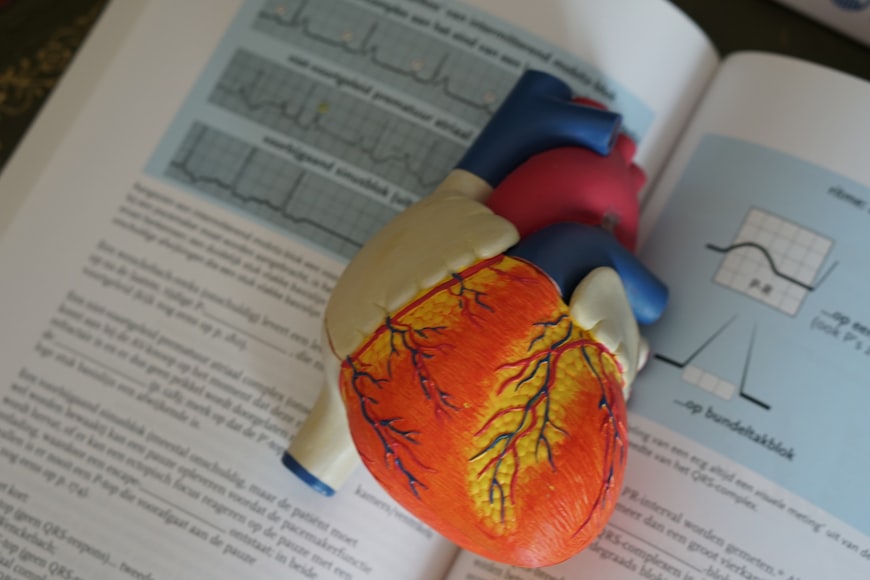Good heart health is essential to living a long and healthy life. Unfortunately, many of us don’t realize the impact that our daily habits can have on our hearts. In this blog post, we’ll take a look at 10 daily habits that are doing more harm than good for your heart. From lack of exercise to an unhealthy diet, these habits are sure to put a strain on your heart and cause long-term damage. We’ll also provide tips on how to reverse the damage and start living a healthier lifestyle.
1) Eating unhealthy foods

Eating processed, fried, or sugary foods can lead to weight gain, high cholesterol, and heart disease. Choose fresh, unprocessed foods and make sure to keep your portions in check. Make healthier choices like fresh fruit and veggies, lean proteins, and whole grains. Avoid foods that are high in sodium, trans fats, and added sugars.
2) Not exercising regularly
Not getting enough physical activity can increase your risk for heart disease and other serious health conditions. Aim for at least 30 minutes of moderate physical activity per day to help keep your heart healthy. This could include activities like walking, jogging, swimming, or dancing. If 30 minutes is too much for you, even just a few minutes of exercise a day can still make a difference.
3) Smoking cigarettes

Smoking cigarettes increases your risk of heart disease, stroke, and other cardiovascular issues. It can also damage your lungs and increase the risk of cancer. Quitting smoking is the best way to protect your heart health. Even just a few cigarettes a day is too much. Talk to your doctor about ways to help you quit.
4) Drinking too much alcohol
Consuming large amounts of alcohol can increase your risk of stroke, heart attack, and other cardiovascular diseases. It can also lead to liver damage and cause high blood pressure. Drinking in moderation is key – no more than two drinks per day for men and one drink per day for women. It’s important to stay within these limits to reduce the risk of heart disease.
5) Not getting enough sleep

Lack of sleep can have negative effects on your heart health, such as increased risk of high blood pressure, irregular heartbeat, and even a higher risk of stroke. Make sure you are getting the recommended 7-8 hours of sleep each night. Additionally, you should be mindful of how much caffeine you are consuming.
6) Stressing out
When stress levels increase, the risk of developing heart disease also increases. Long-term stress can cause chronic inflammation, weaken the immune system, and affect blood pressure and cholesterol levels. To reduce stress, try deep breathing exercises, yoga, or other mindfulness activities. You can also schedule breaks throughout the day, take walks outdoors, and set realistic goals for yourself.
7) Having an unhealthy work-life balance

Working too much and not having enough time for yourself can take a toll on your heart health. Make sure to take time off from work, spend time with family, exercise, and take breaks throughout the day. This will help you maintain a healthy balance between work and leisure. Not taking regular breaks can lead to stress, which can have a negative impact on your heart.
8) Not taking breaks
Taking breaks is essential for both physical and mental health. Breaks give your body a chance to rest and recharge, and can help reduce stress levels. Even just taking a few minutes out of your day to take a walk or get some fresh air can make a big difference. So make sure to schedule in regular breaks throughout the day.
9) Not spending time with loved ones

Being around those you love can be incredibly beneficial for your heart health. Connecting with loved ones can reduce stress and help you to maintain a healthy emotional balance. Make sure to set aside time for meaningful conversations with family and friends. Additionally, engaging in activities such as group sports or volunteering can help to strengthen relationships and also increase your physical activity.
10) Not taking care of your mental health
Mental health is just as important as physical health, yet it is often neglected. Poor mental health can lead to emotional, psychological and physical issues, including an increased risk of heart disease. Make sure to practice self-care and reach out for help if needed. Don’t forget to talk to a friend, therapist or doctor if you’re feeling overwhelmed.

